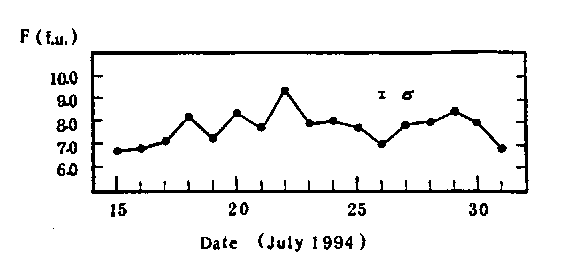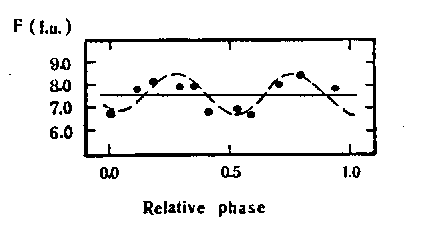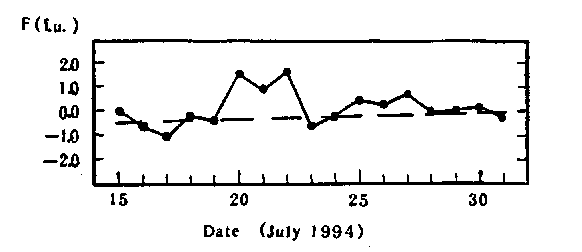|
The radiation of the Jupiter in a continuous spectrum on frequency 1665
MHg was measured on the radio-telescope RATAN-600 from July 15 till July 31
in azimuth 30 deg. with horizontal linear polarization (the å-plane was
under a angle 1.5 deg. to equator of the Jove).
On measurements of a reference source (3C 218, flux of 32.5 Jy) error
measurements of flows has appeared about 2%. Results of measurement of
Jovian flux, enumerated on a standard distance 4.04 áå, are displayed on
figure 1a.
The attempt is made to divide a response of a magnetosphere of
the falling comets into two parts: immediate responce during impacts and
more delaed one.
On figure 1b the relation of the measured flows to a relative
phase is showed and the data from July 17 till July 23 are excluded.
Despite of small quantity of data precisiouly, sinusoidal relation from
phases is obvious, however amplitude and phase of a sine wave sharply differ
from their values in a quiet condition.
The values of fluxes with excluded sinusoidal component are displayed
on figure 1c. It is visible, that between July 19 and 20 the increase
of a flux was begun, reaching on July 22 29% +- 2% from mean
value of a flux.
a) Flux depending on date. 


|